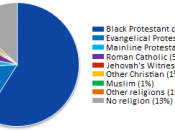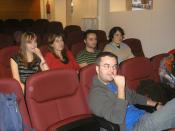A Deeper Examination of the Merits and Shortcomings of Nicholas Lemann's The Promised Land: The Great Black Migration and How it Changed America
Nicholas Lemann's The Promised Land: The Great Black Migration and How it Changed America recounts the story of the mass migration of African Americans from the sharecropping South to the big city life of northern and western urban areas from the eyes of a few select individuals. Lemann paints the scene of the massive movement as a response to the futility of sharecropping facilitated by the newly developed mechanical cotton picker. Lemann proposes that these machines, coupled with a shared hope for a better life by southern black Americans, were the major push factors behind the migration of about five million blacks to the North and West between 1940 and 1970. He implies, through his central character Ruby's unsuccessful tale, that life after migrating to "the promised land" of the North was not any better for blacks, and that in actuality, it released even more problems and issues.
Lemann also strives to discover the roots of current problems in urban ghettos, determine why earlier attempts to solve these issues failed, and suggest alternative approaches to America's leading social dilemma-the ghetto.
The story begins in Clarksdale, Mississippi, in the early 1940's, with Ruby Lee Daniels, an African American woman who worked as a cotton picker on the Hopson farm when a demonstration of eight newly developed mechanical cotton pickers took place. These pickers
could "pick a bale of cotton by machine . . . [for] $5.26," while "picking it by hand cost $39.41. . . . [e]ach machine did the work of fifty people," (5). Lemann asserts that the mechanical cotton picker destroyed the sharecropping system in the Mississippi Delta area, forcing many, like Ruby, to...


